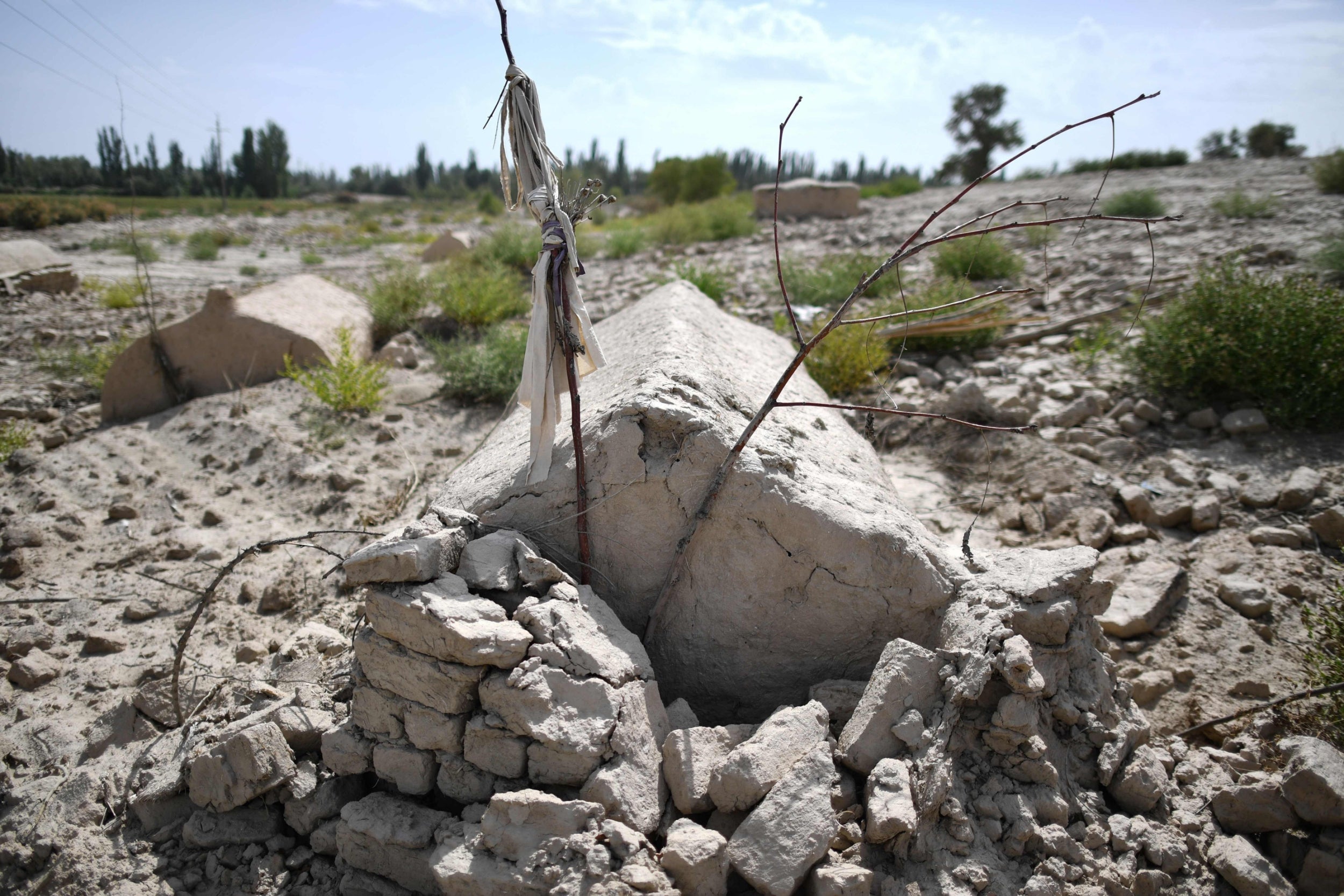China ‘building cark parks and playgrounds’ over Uighur Muslim graveyards ‘to eradicate ethnic group’s identity’
Comes as US imposes travel bans on Chinese officials involved in ‘campaign of repression’ of Muslims

China has destroyed scores of traditional burial grounds belonging to Uighur Muslims in the northwestern Xinjiang province, in what critics say is part of a campaign to wipe out the minority group’s cultural identity.
Satellite images analysed by Earthwise Alliance and published on Wednesday showed flattened earth, new car parks or standardised facilities in places that once housed the remains of Uighur families going back generations.
It comes as the allegations against China of persecution towards the Uighur people became a key aspect of the ongoing trade war between the US and Beijing.
Late on Tuesday, the US State Department announced travel bans directed at Chinese officials over the Xinjiang crackdown, saying it would not issue any visas for those known to be involved in what Mike Pompeo called the “campaign of repression”.
And it followed an announcement a day earlier by the US Commerce Department, which blacklisted 28 Chinese companies – mostly tech firms – and government agencies over the Uighur issue.
“The protection of human rights is of fundamental importance, and all countries must respect their human rights obligations and commitments,” Mr Pompeo said. “The United States will continue to review its authorities to respond to these abuses.”
China is believed to have detained more than a million people from mostly Muslim ethnic minorities in Xinjiang since a counterterrorism campaign began in 2017, while those who are free are subjected to heightened levels of scrutiny and surveillance.
But while the UN has raised concerns at the highest level over the fate of the Uighurs, China insists its use of what it calls voluntary “vocational training” centres in the province is a legitimate tactic to prevent the spread of extremism.
The Chinese crackdown goes far beyond detentions, however, with policies including the destruction of mosques and the separation of children from their parents amounting to what some researchers have termed “cultural genocide”.
Salih Hudayar, a Uighur in exile who told the AFP news agency the graveyard where his great-grandparents were buried had been demolished, said the destruction of burial grounds was an attempt “to disconnect us from our history”.
“This is all part of China’s campaign to effectively eradicate any evidence of who we are, to effectively make us like the Han Chinese,” he said.
AFP reporters who visited some of the destroyed burial grounds described seeing unearthed bones, which independent forensic experts said were human remains.
Even the tombs of famous Uighurs were not spared. AFP reported that an enormous graveyard where the prominent Uighur poet Lutpulla Mutellip was buried had been turned into a “Happiness Park” with a man-made lake, fake pandas and a playground for children. Officials said that while the graves had been relocated to a more “standardised” facility, they did not know what had happened to Mutellip’s remains.
China has responded to the US measures over Xinjiang in a tit-for-tat manner, saying on Wednesday that it planned tighter visa restrictions of its own for any US nationals with what it called ties to “anti-China groups”.
The new rules would include drafting a list of US military and CIA-linked institutions and rights groups, and the addition of their employees to a visa blacklist, sources in Beijing told the Reuters news agency.
China has previously accused the US of using such organisations to incite anti-government protests both in mainland China and, most prominently, in Hong Kong, which has seen growing unrest since June.
The measures and counter-measures come amid souring relations between the world’s two largest economies, even as they prepare to reopen trade negotiations in Washington on Thursday.
Join our commenting forum
Join thought-provoking conversations, follow other Independent readers and see their replies
Comments
Bookmark popover
Removed from bookmarks